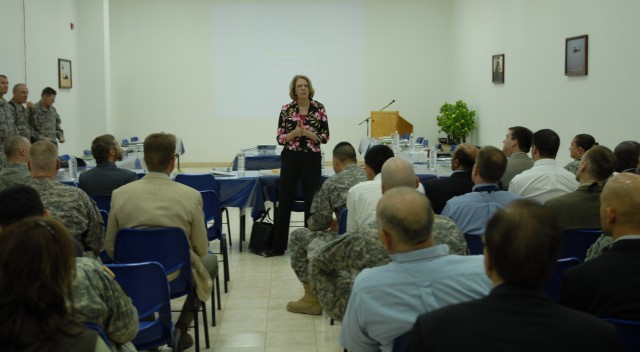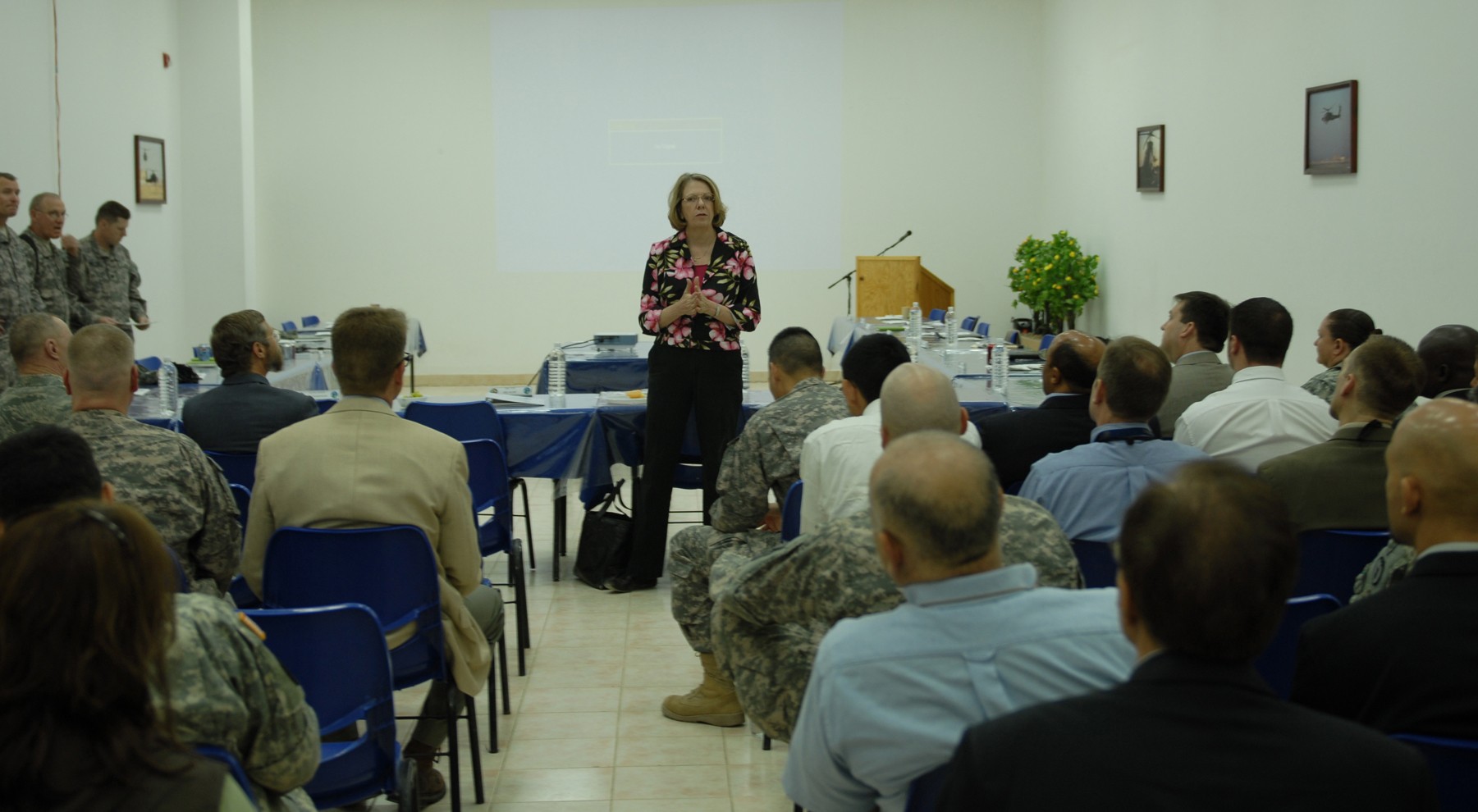
CONTINGENCY OPERATING BASE SPEICHER, TIKRIT, Iraq - Several senior
leaders from the U.S. Embassy and Multi-National Corps-Iraq visited Contingency
Operating Base Speicher, April 28, to review the progress achieved by the Salah ad-Din
Provincial Reconstruction Team.
Provincial Reconstruction Teams have often been hailed as a crucial component
to creating stability in Iraq and Afghanistan. The team's relationship with the military
units they serve with is a key part of their success -- the stronger the mutual support,
the more effective both organizations are. In Salah ad-Din, that relationship is strong
and growing daily.
During the visit, Phyllis Powers, director, Office of Provincial Affairs and Maj.
Gen. James P. Hunt, deputy commanding general, MNC-I, reviewed the progress of the
PRT and its counterparts in the 3rd Infantry Brigade Combat Team, 25th Infantry
Division.
"The CG's priority is to support the PRTs," said Hunt, referring to MNC-I
Commander Lt. Gen. Charles H. Jacoby. Hunt explained his mission to work with the
embassy to ensure the PRTs have the best support they can get from the military is
important, because their mission is critical to Iraq's successful future.
The Salah ad-Din PRT has more than 40 members, including one and two-man
satellite teams in each of the provinces eight qadas, or districts, but its numbers really
include more than 3,500 Soldiers from the 3rd Inf. Bde. Combat Team.
"The satellite team concept which you pioneered here is the future for Iraq, as we
reposition forces for President Obama's August 2010 timeline," said Powers, describing
the success of the State Department reps partnered at the company and battalion level
with district governments.
Salah ad-Din is lucky to have such a strong relationship between the PRT and
the BCT, said Rick Bell, the PRT leader. The two work so closely that at times, it's hard
to tell them apart, he added.
Many civilian and military members agreed with this sentiment and cited it
numerous times while they described the recent successes in assisting the provincial
government in areas including rule of law, health, public diplomacy, economics and
governance.
Some of the successes include the recent decision by the Government of Iraq to
allow forensic evidence to be used in court trials, staffing of new medical clinics,
creating university partnerships and the implementation of desert farming technologies
like hoop houses and drip irrigation.

Social Sharing